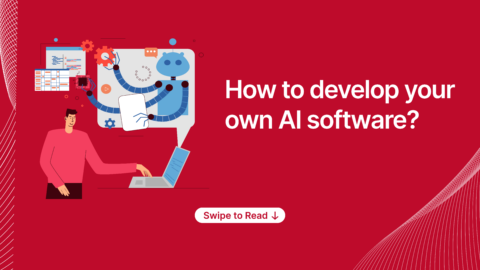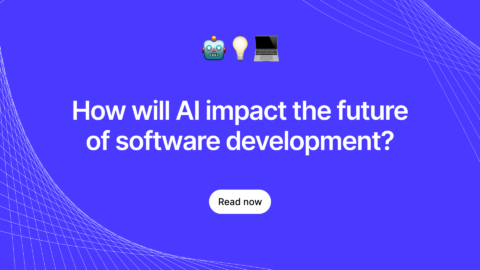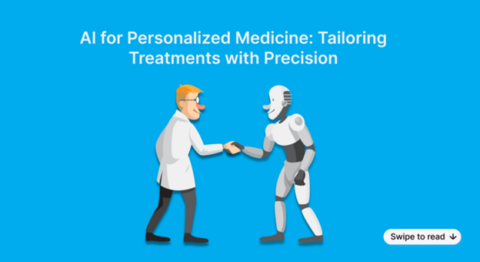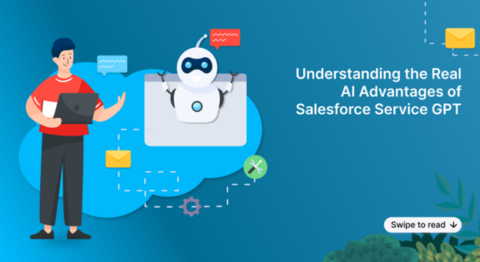In the ever-changing healthcare industry, artificial intelligence (AI) offers a unique opportunity to gain deeper insights into the industry. AI has been used in various industries to help make decisions faster and with more accuracy. With its ability to analyze large amounts of data and detect patterns, AI has the potential to revolutionize the healthcare sector. With the increasing volume of medical data, AI can help healthcare providers to analyze and interpret vast amounts of information to make informed decisions. In this blog post, we will explore how AI can be used to gain more insight into the healthcare industry and how it can be used to improve patient care and outcomes. We will also look at some of the challenges that AI poses for the healthcare industry.
Benefits of AI in the Healthcare industry
The use of artificial intelligence (AI) in the healthcare industry can provide a wide range of benefits that can improve patient care and lower costs. AI is being used in a variety of healthcare applications such as disease diagnosis, medical imaging, drug development, virtual health assistants, and more.
Fast and accurate diagnosis:
One of the main benefits of AI in healthcare is the improved accuracy and speed of diagnosis. AI can identify patterns that may be missed by human physicians, helping to identify diseases earlier and more accurately. AI can also help automate processes such as medical coding, which can reduce errors and improve efficiency.
Reduce cost:
AI can also be used to track patient records, providing insights into treatments and outcomes that can help guide clinicians in providing the best possible care. By analyzing data from multiple sources, AI can quickly identify potential issues that could lead to better treatments or preventive measures.
Automated process:
Another major benefit of AI in healthcare is its ability to reduce healthcare costs. AI can identify issues more quickly and accurately, helping to reduce waste and streamline operations. It can also be used to automate certain processes, such as insurance claims processing, which can reduce paperwork and save time.
Personalized care:
AI can also provide personalized care for patients. AI-driven systems can learn from a patient’s data to provide tailored recommendations for treatments, lifestyle changes, or other interventions. This can help improve patient satisfaction and enable better outcomes.
Gain more insight into the healthcare industry with AI
AI technology has become a major factor in the healthcare industry, helping to drive advancements and create more opportunities. It can help providers gain more insight into patient data, optimize operational processes, and improve overall efficiency. AI-based tools can also be used to analyze large amounts of data quickly, allowing healthcare organizations to gain valuable insights into trends and patterns within the industry. Here are a few ways in which AI can help gain more insight into the healthcare industry:
Predictive analytics:
AI can help healthcare providers to predict future patient outcomes based on data collected from previous patients. This information can be used to identify patients who are at high risk for certain conditions and to develop tailored treatment plans that help to reduce the likelihood of those conditions developing.
For example, AI can be used to identify disease patterns and uncover correlations between patient characteristics and outcomes.
Improved diagnosis:
AI can help healthcare providers to diagnose conditions more accurately and quickly by analyzing vast amounts of data from various sources, including medical records, imaging scans, and lab results. This can help providers to identify conditions that might otherwise have gone unnoticed and provide faster and more effective treatment to patients.
With that healthcare providers track patient progress and predict possible treatments, helping to provide more personalized care.
Personalized medicine:
AI can help healthcare providers to provide more personalized care to patients. By analyzing data collected from patients, AI can help providers to identify individual patient needs and develop targeted treatment plans that are specifically tailored to those needs.
Improved clinical trial design:
AI can help healthcare providers to design more effective clinical trials. By analyzing large amounts of data, AI can help researchers to identify the most effective treatments for specific conditions and to design trials that provide the best chance of success.
Improved resource allocation:
AI can help healthcare providers to make more informed decisions about resource allocation. By analyzing data from various sources, AI can help providers to identify areas where resources are being underutilized and to allocate resources more effectively.
Automation:
AI can also be used to uncover hidden insights from medical records, streamlining processes such as claims processing. This type of automation helps reduce the burden of manual data entry and management, freeing up time for providers to focus on other tasks.
Communication:
AI can also help improve communication within healthcare teams. AI-powered chatbots can be used to provide efficient answers to patient questions, while virtual assistants can help coordinate appointments and other tasks. By using AI to automate routine tasks, healthcare organizations can save time and resources while improving their overall efficiency.

Future trends in healthcare with AI
The healthcare industry is on the brink of a major transformation as AI and other advanced technologies become more prevalent. AI has already revolutionized healthcare in several ways, from patient diagnostics to personalized medicine, and its potential is only beginning to be explored. In the near future, AI will continue to make its presence felt in the healthcare industry with advances in areas such as data analysis, predictive analytics, drug discovery, and remote patient monitoring. Here are some of the future trends in the healthcare industry with AI:
-
- Personalized medicine: AI will help doctors personalize treatment plans based on a patient’s genetic information, medical history, and lifestyle.
- Diagnosis and triage: AI algorithms will be used to diagnose and triage patients, providing faster and more accurate diagnoses and reducing the workload of healthcare professionals.
- Virtual health: AI-powered virtual health assistants will allow patients to receive care from the comfort of their own homes, reducing the need for in-person visits.
- Clinical trials and drug discovery: AI will be used to improve clinical trials and drug discovery, helping to bring new treatments to market faster and more efficiently.
- Wearables and remote monitoring: AI-powered wearable devices and remote monitoring systems will help to improve patient outcomes by providing continuous monitoring and early detection of health issues.
- Fraud detection and waste reduction: AI will help to detect fraud and reduce waste in the healthcare system, saving money and improving patient outcomes.
These are just a few examples, but AI has the potential to revolutionize the healthcare industry and improve patient outcomes in many different ways.
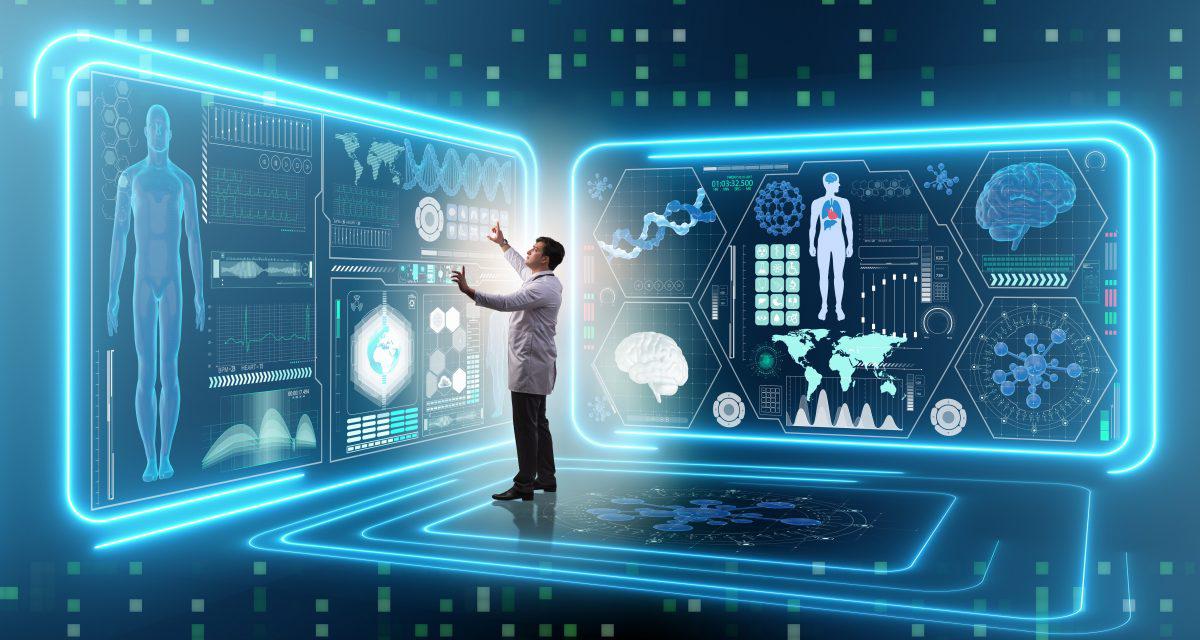
Final thoughts
AI has been a game changer for the healthcare industry, allowing us to gain more insight and understanding of patient health than ever before. AI can help identify patterns, diagnose diseases, and suggest treatments that may be effective. It can also help reduce costs and increase efficiency in healthcare operations. Ultimately, AI provides an invaluable tool for healthcare providers and patients alike. As AI continues to improve and become more widely used, we can expect to see even more benefits for the healthcare industry. By leveraging the power of AI, healthcare organizations can position themselves for greater success in the future. With its potential to revolutionize the field of medicine, it is only a matter of time before AI becomes commonplace in hospitals, clinics, and research centers around the world.






